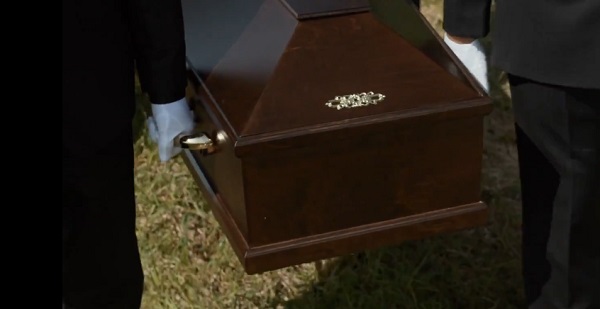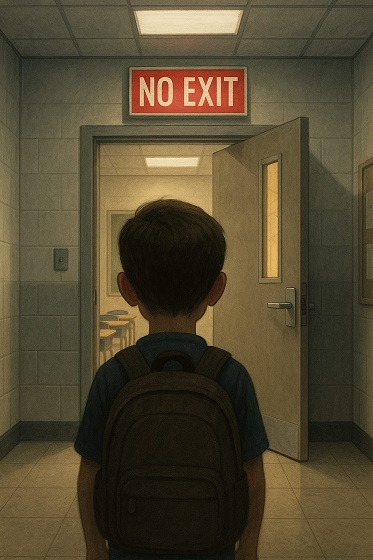Uncategorized
Venezuela opposition urges walkouts to pressure Maduro

CARACAS, Venezuela — Opposition leader Juan Guaido is looking to ratchet up pressure on President Nicolas Maduro with walkouts across Venezuela on Wednesday, just a day after the embattled socialist administration barred Guaido from leaving the country while he is investigated for anti-government activities.
The man challenging Maduro’s claim to the presidency is urging Venezuelans to step outside their homes and workplaces for two hours beginning at noon in the first mass mobilization since he declared himself the nation’s rightful leader a week ago during another round of big protests.
“Venezuela is set on change,” Guaido said.
The surge in political
But Maduro is holding firm in refusing to step down. He oversaw military exercises in recent days while seeking to consolidate support from the armed forces and he is accusing Washington of staging a coup.
In an interview with Russia’s state-owned RIA Novosti news agency on Wednesday, Maduro said he was “willing to sit down for talks with the opposition for the sake of Venezuela’s peace and its future.” Maduro said the talks could be held with mediation of other countries. Russia is one of the staunchest supporters of Maduro and has offered to mediate.
Maduro also accused the U.S. president of ordering a hit on him from Colombia. He said he was aware of Trump’s “orders” for the Colombian government and the local mafia to kill him.
On Tuesday, the Supreme Court barred Guaido from leaving the country after chief prosecutor Tarek William Saab announced that he was opening a criminal investigation of Maduro’s foe, who heads the opposition-controlled congress. Saab is a key Maduro ally and the high court is stacked with Maduro loyalists.
“Once more we’ll come out victorious,” Maduro, dressed in a green cap and shirt, said Tuesday while standing before rows of troops. “We are on the right side of history.”
The court move came after U.S. national security adviser John Bolton warned that the Maduro government would face “serious consequences” if Guaido is harmed.
Guaido has thus far managed to avoid arrest and the Supreme Court did not strip him of his legislative immunity, though the new investigation could signal that Maduro’s administration is moving to take a more punitive approach.
Speaking Tuesday outside the National Assembly, Guaido said he was aware of personal risks.
“I don’t underestimate the threat of persecution at the moment, but here we are,” he said.
The U.S. has emerged as Guaido’s most powerful ally, announcing on Tuesday that it was giving him control of Venezuela’s U.S. bank accounts.
U.S. Secretary of State Mike Pompeo certified that Guaido has the authority to take control of any Venezuelan government accounts at the Federal Reserve Bank of New York or any other U.S.-insured banks. He said the certification would “help Venezuela’s legitimate government safeguard those assets for the benefit of the Venezuelan people.”
On Monday, the U.S. imposed sanctions on Venezuela’s state-owned oil company, Petroleos de Venezuela SA, that could potentially depriving the Maduro government of $11 billion in export revenues over the next year.
Venezuela’s economy is already ravaged by hyperinflation and widespread food and medical shortages that have driven millions of people to leave the country.
Maduro called the sanctions “criminal” and vowed to challenge the U.S. in court. “With these measures, they intend to rob us,” he said.
Violent street demonstrations erupted last week after Guaido during a huge opposition rally in Caracas declared that he had assumed presidential powers under the constitution and planned to hold fresh elections to end Maduro’s “dictatorship.”
Under Venezuela’s constitution, the head of the National Assembly is empowered to take on the duties of the chief executive under a range of circumstances in which the presidency is vacated. The opposition argues Maduro’s re-election last May was a sham.
The previously little-known Guaido has re-invigorated the opposition movement by pushing for three immediate goals: to end Maduro’s “usurpation” of power, establish a transitional government and hold a new presidential election.
The U.S. State Department is telling Americans not to travel to Venezuela, warning of the threat of being arbitrarily arrested or caught in a protest. Venezuela was put on the highest U.S. level advisory, a list that also includes Syria, Afghanistan and Iraq.
The U.N. human rights office says security forces in Venezuela detained nearly 700 people in just one day of anti-government protests last week — the highest such tally in a single day in the country in at least 20 years. It says more than 40 people are believed to have been killed.
Maduro’s allies blame the opposition for the violence and deny the high death toll as well as reports that minors were among those arrested.
Socialist party leaders have been organizing counter-protests by thousands of Maduro supporters in different parts of the country.
On Tuesday, Maduro announced he is expanding Venezuela’s civilian armed militia to 2 million members. The reserve force was created by the late Hugo Chavez to train civilians to assist the armed forces and defend the socialist revolution from attacks.
Maduro vowed never to let the U.S. intervene in Venezuela’s affairs.
“These are moment of history — and battle,” he said.
___
Armario reported from Bogota, Colombia.
Scott Smith And Christine Armario, The Associated Press
Uncategorized
Trump Admin Establishing Council To Make Buildings Beautiful Again


From the Daily Caller News Foundation
By Jason Hopkins
The Trump administration is creating a first-of-its-kind task force aimed at ushering in a new “Golden Age” of beautiful infrastructure across the U.S.
The Department of Transportation (DOT) will announce the establishment of the Beautifying Transportation Infrastructure Council (BTIC) on Thursday, the Daily Caller News Foundation exclusively learned. The BTIC seeks to advise Transportation Secretary Sean Duffy on design and policy ideas for key infrastructure projects, including highways, bridges and transit hubs.
“What happened to our country’s proud tradition of building great, big, beautiful things?” Duffy said in a statement shared with the DCNF. “It’s time the design for America’s latest infrastructure projects reflects our nation’s strength, pride, and promise.”
“We’re engaging the best and brightest minds in architectural design and engineering to make beautiful structures that move you and bring about a new Golden Age of Transportation,” Duffy continued.
Mini scoop – here is the DOT’s rollout of its Beautifying Transportation Infrastructure Council, which will be tasked with making our buildings beautiful again. pic.twitter.com/
9iV2xSxdJM — Jason Hopkins (@jasonhopkinsdc) October 23, 2025
The DOT is encouraging nominations of the country’s best architects, urban planners, artists and others to serve on the council, according to the department. While ensuring that efficiency and safety remain a top priority, the BTIC will provide guidance on projects that “enhance” public areas and develop aesthetic performance metrics.
The new council aligns with an executive order signed by President Donald Trump in August 2025 regarding infrastructure. The “Making Federal Architecture Beautiful Again” order calls for federal public buildings in the country to “respect regional architectural heritage” and aims to prevent federal construction projects from using modernist and brutalist architecture styles, instead returning to a classical style.
“The Founders, in line with great societies before them, attached great importance to Federal civic architecture,” Trump’s order stated. “They wanted America’s public buildings to inspire the American people and encourage civic virtue.”
“President George Washington and Secretary of State Thomas Jefferson consciously modeled the most important buildings in Washington, D.C., on the classical architecture of ancient Athens and Rome,” the order continued. “Because of their proven ability to meet these requirements, classical and traditional architecture are preferred modes of architectural design.”
The DOT invested millions in major infrastructure projects since Trump’s return to the White House. Duffy announced in August a $43 million transformation initiative of the New York Penn Station in New York City and in September unveiledmajor progress in the rehabilitation and modernization of Washington Union Station in Washington, D.C.
The BTIC will comprise up to 11 members who will serve two-year terms, with the chance to be reappointed, according to the DOT. The task force will meet biannually. The deadline for nominations will end Nov. 21.
Uncategorized
New report warns WHO health rules erode Canada’s democracy and Charter rights

The Justice Centre for Constitutional Freedoms has released a new report titled Canada’s Surrender of Sovereignty: New WHO health regulations undermine Canadian democracy and Charter freedoms. Authored by Nigel Hannaford, a veteran journalist and researcher, the report warns that Canada’s acceptance of the World Health Organization’s (WHO) revised International Health Regulations (IHR) represents a serious erosion of national independence and democratic accountability.
The IHR amendments, which took effect on September 19, 2025, authorize the WHO Director-General to declare global “health emergencies” that could require Canada to follow directives from bureaucrats in Geneva, bypassing the House of Commons and the will of Canadian voters.
The WHO regards these regulations as “binding,” despite having no ability or legal authority to impose such regulations. Even so, Canada is opting to accept the regulations as binding.
By accepting the WHO’s revised IHR, the report explains, Canada has relinquished its own control over future health crises and instead has agreed to let the WHO determine when a “pandemic emergency” exists and what Canada must do to respond to it, after which Canada must report back to the WHO.
In fact, under these International Health Regulations, the WHO could demand countries like Canada impose stringent freedom-violating health policies, such as lockdowns, vaccine mandates, or travel restrictions without debate, evidence review, or public accountability, the report explains.
Once the WHO declares a “Pandemic Emergency,” member states are obligated to implement such emergency measures “without delay” for a minimum of three months.
Importantly, following these WHO directives would undermine government accountability as politicians may hide behind international “commitments” to justify their actions as “simply following international rules,” the report warns.
Canada should instead withdraw from the revised IHR, following the example of countries like Germany, Austria, Italy, Czech Republic, and the United States. The report recommends continued international cooperation without surrendering control over domestic health policies.
Constitutional lawyer Allison Pejovic said, “[b]y treating WHO edicts as binding, the federal government has effectively placed Canadian sovereignty on loan to an unelected international body.”
“Such directives, if enforced, would likely violate Canadians’ Charter rights and freedoms,” she added.
Mr. Hannaford agreed, saying, “Canada’s health policies must be made in Canada. No free and democratic nation should outsource its emergency powers to unelected bureaucrats in Geneva.”
The Justice Centre urges Canadians to contact their Members of Parliament and demand they support withdrawing from the revised IHR to restore Canadian sovereignty and reject blind compliance with WHO directives.
-

 Frontier Centre for Public Policy8 hours ago
Frontier Centre for Public Policy8 hours agoRichmond Mayor Warns Property Owners That The Cowichan Case Puts Their Titles At Risk
-

 armed forces19 hours ago
armed forces19 hours agoCanadian veteran says she knows at least 20 service members who were offered euthanasia
-

 Business8 hours ago
Business8 hours agoSluggish homebuilding will have far-reaching effects on Canada’s economy
-

 Business1 day ago
Business1 day agoCarney shrugs off debt problem with more borrowing
-

 Alberta1 day ago
Alberta1 day agoWhen Teachers Say Your Child Has Nowhere Else to Go
-

 armed forces2 days ago
armed forces2 days agoWhat A Second World War Aircraft Taught Me About Remembrance Day
-

 Addictions1 day ago
Addictions1 day agoCanada is divided on the drug crisis—so are its doctors
-

 armed forces2 days ago
armed forces2 days agoWhy we keep getting Remembrance Day wrong









